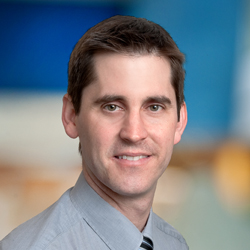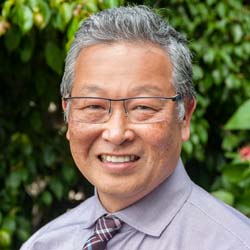Autoimmune Kidney Disease Clinic
In autoimmune diseases, the immune system attacks part of the body as though it were an invader, like a virus. This can be especially serious if the attack involves the kidneys.
At Seattle Children’s Autoimmune Kidney Disease Clinic, we treat the whole patient, not just their kidneys or their disease. At a single visit, your child will see doctors specializing in rheumatology and nephrology. Our expert team also includes nurses, physical and occupational therapists, dietitians and social workers.
We provide care for issues needing immediate treatment. We also help with long-term management so your child stays as healthy as possible.
Why Choose Seattle Children’s Autoimmune Kidney Disease Clinic
Seattle Children’s is the only program on the West Coast dedicated to diagnosing and treating babies, children and teens with autoimmune disease that affects the kidneys. Only a handful of clinics in the nation have this focus.
Our team works with you to provide complete care for your child and family. We base our treatments on the most current research on autoimmune kidney (renal) disease. We tailor treatment to meet your child’s needs.
We have deep experience in treating children with serious, lifelong disease. We do our best to guide families during this stressful time as they choose the best care for their child. We have the only rheumatology program in the Pacific Northwest dedicated to children and teens.
Conditions We Treat
We treat children with complex and often rare autoimmune conditions that cause problems with the kidneys’ ability to clean the blood and control fluids in the body. Examples are irritation and swelling of the blood vessels (vasculitis) and systemic lupus erythematosus (SLE).
If a child’s kidneys are affected by their autoimmune condition, their disease is likely to be worse and lead to complications. We closely track their disease and how they respond to treatment.
-
Lupus nephritis
Up to two-thirds of children with systemic lupus erythematosus (SLE) develop inflammation (irritation and swelling) in the part of the kidneys that filters blood. This swelling is called glomerulonephritis or nephritis. It may damage kidneys so they no longer can remove waste from the blood or control the amount of fluids in the body. Without the right treatment, nephritis can harm the kidneys so much they can’t get better.
-
ANCA-associated vasculitis
Anti-neutrophil cytoplasmic autoantibodies (ANCAs) are abnormal antibodies that cause infection-fighting cells to mistakenly attack small blood vessels in different parts of the body, including the kidneys. This causes swelling of the walls of blood vessels. It also limits blood flow to important organs like the kidneys. The two main types of ANCA vasculitis are microscopic polyangiitis (MPA) and granulomatosis with polyangiitis (GPA). GPA is also known as Wegener granulomatosis. Your doctor will regularly check your child’s blood and urine for signs of kidney problems. Early treatment can help prevent long-term damage to the kidneys.
-
Henoch–Schönlein purpura
Henoch–Schönlein purpura (HSP) causes irritation and swelling (inflammation) of the small blood vessels, which can result in a prominent skin rash, arthritis (inflammation of the joints), abdominal pain and nephritis (inflammation of the blood vessels within the kidney). It is one of the more common types of vasculitis (inflamed blood vessels) in children. Your doctor will measure your child’s blood pressure regularly and check for signs of kidney inflammation, such as blood or protein in the urine. Depending on how serious the condition is, your child may need a kidney biopsy and treatment with medication to calm the immune system. Long-term kidney disease (called glomerulonephritis) develops in about 5% of children with HSP. HSP mostly affects children ages 2 to 10, but it can also affect older children and teens. Early treatment can help prevent long-term damage to the kidneys.
-
Goodpasture syndrome
In Goodpasture syndrome, abnormal antibodies (autoantibodies) attack the kidneys and lungs. This causes permanent damage that gets worse over time. This rare condition mostly affects young men but also happens in children. Treatments include medicine that calms down the immune system and a blood-cleaning therapy (called plasmapheresis) to remove the autoantibodies.
-
Polyarteritis nodosa (PAN)
In this rare disease, irritation and swelling of the blood vessels (vasculitis) damages different organs in the body. If blood vessels to the kidneys are affected, polyarteritis nodosa causes high blood pressure and affects how well the kidneys work. It is usually treated with medicine to calm down the immune system. Careful monitoring is important because the medicines have side effects.
-
Sarcoidosis
In sarcoidosis, immune system cells form lumps called granulomas. The lumps collect in various organs, sometimes including the kidneys. Sarcoidosis can harm the kidneys. It also may lead to kidney stones because of extra calcium in the urine. Not everyone has symptoms that need treatment. If your child does, your doctor may use a steroid medicine such as prednisone.
Services We Provide
Children with autoimmune kidney disease are often so sick they are in the hospital when the condition is diagnosed. Most often, they will need intensive treatment for 3 to 6 months. This is followed by at least 1 year of continued medicine and monitoring.
It is common for children with autoimmune disease to need drugs throughout their lifetime to protect their kidneys. We hold monthly clinics and provide follow-up care as needed.
-
Monitoring
We carefully watch your child for symptoms that may be a sign of a flare-up of their disease. We regularly test their pee (urine) and blood for signs of any harm to the kidneys. We also check that their medicine is working as it should.
-
Medicine
It is likely your child will need medicine to calm down their immune system (immunosuppression). It is taken by mouth or through a vein (IV, also called intravenous). IV drugs include cyclophosphamide and rituximab. Mycophenolate (CellCept) and azathioprine (Imuran) are taken in pill form. When possible, we limit use of steroids such as prednisone. They can weaken bones.
-
Nutrition counseling
We work with your family on a kidney-healthy eating plan. The diet takes into account any medicine your child is taking. Vitamin D is especially important.
-
Clinical trials
At Seattle Children’s we conduct research to help bring promising new treatments to patients faster. Your child may have the chance to take part in a clinical trial testing new ways to treat autoimmune kidney disease in children.
-
Mental health support
Having an autoimmune disease may affect your child’s view of themselves or their body. Children with these problems may feel they are different from other children, or they may have some different needs than most of their peers. They might feel lonely or depressed at times. Our team can help your child cope with feelings and concerns like these.
Team
Rheumatologists
Rheumatologists are doctors with special training in inflammatory diseases that affect joints and connective tissues. We have the only program in the Pacific Northwest dedicated to children and teens with inflammatory diseases that affect joints, muscles and connective tissues.
Nephrologists
Nephrologists are doctors who specialize in treating diseases of the kidneys – the organs that help filter waste out of the blood and make urine. Seattle Children’s is a national leader in caring for babies, children and teens with kidney conditions, including the most complex disorders.
Resources
You and your family may find helpful information on these links and patient handouts.
- Glomerular Diseases (National Institutes of Health)
- Goodpasture Syndrome (National Institutes of Health)
- Síndrome de Goodpasture (Medline Plus)
- Henoch-Schönlein Purpura (National Institutes of Health)
- Henoch-Schönlein Purpura (Paediatric Rheumatology European Society) (PDF)
- Henoch-Schönlein Purpura (Vasculitis Foundation)
- Lupus Nephritis (National Institutes of Health)
- Lupus and Kidney Disease (National Kidney Foundation)
- Wegener's Granulomatosis (Vasculitis Foundation)
Telemedicine at Seattle Children’s
Your child’s first appointment in our clinic will be in person and take about 90 minutes. Later visits may be offered via telehealth (virtual). Learn more.
Paying for Care
Learn about paying for care at Seattle Children’s, including insurance coverage, billing and financial assistance.
Access Additional Resources
Get resources for patients and families, including information on food, housing, transportation, financial assistance, mental health and more.


